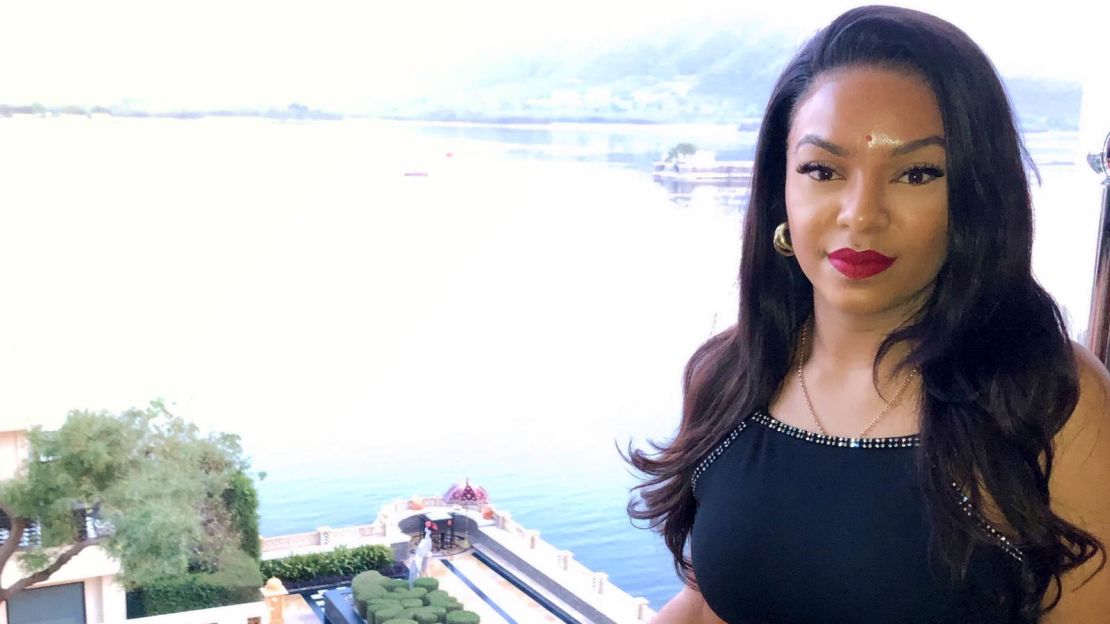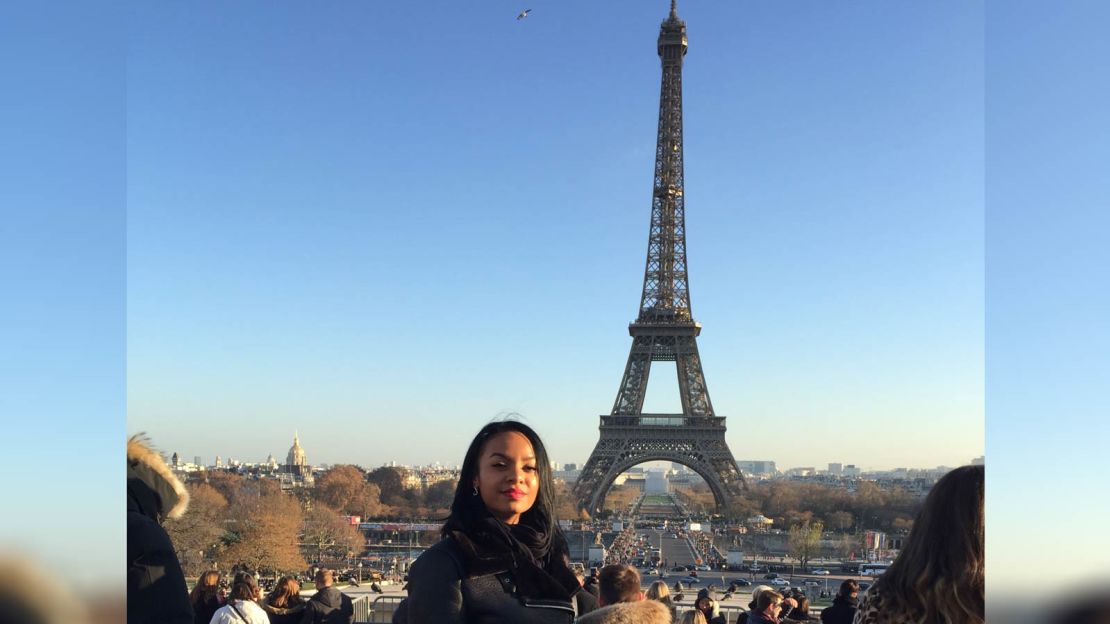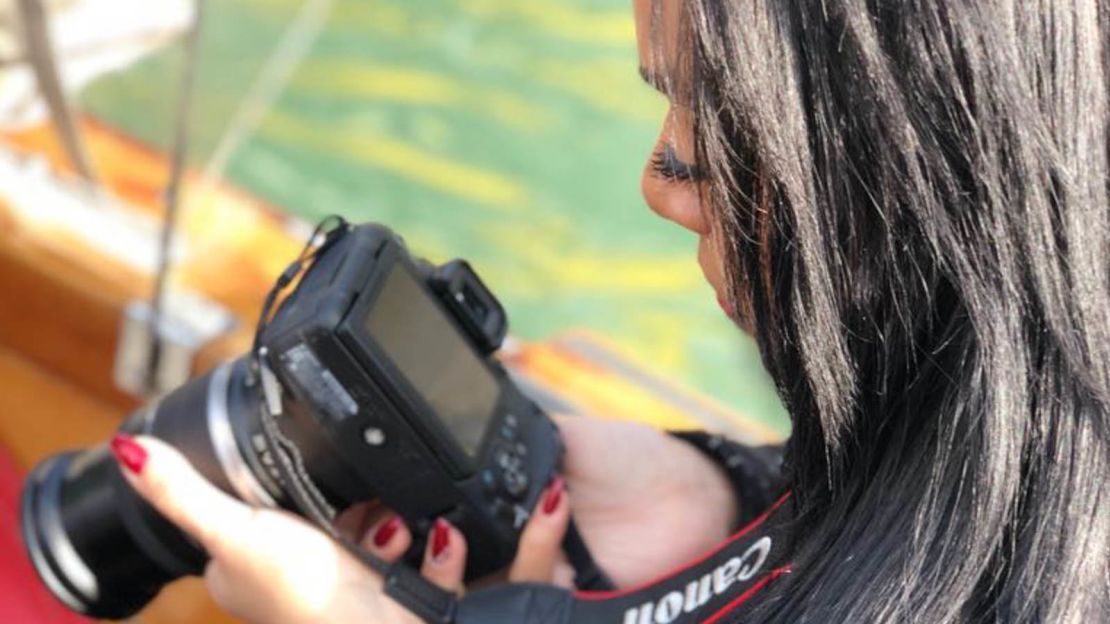Traveling has given me a stable sense of identity. It’s a form of escape where I feel most confident, at peace and like myself.
I started traveling solo in my early twenties and, of course, I had some expectations of what I might gain and learn.
I imagined learning about new cultures and traditions, the history of different cities, its people and architecture. I hoped to gain a better understanding of religions other than my own and perhaps pick up some new skills along the way.
And while those expectations were certainly met, I’ve become aware of how the color of my skin can shape my time abroad. These are some of the lessons I’ve learned from my personal experiences.
Ignorance and racism can occur anywhere
There have been times when I’ve stood out like a sore thumb at restaurants and cafes for being the only Black woman around and waiters have sat me at tables far away from the liveliest parts, away from the entrance and closer to the back. My orders have been ignored and the service I’ve received poor compared to the enthusiasm and smiles given to other customers.
At other times, I have been catcalled and approached by men, sometimes on their own and sometimes in twos or threes, and asked to pose for photos with them.
Compliments given to me by strangers often held insults too. I’ve been told that I’m “too pretty to be Black,” or that the Russian side of my family was to be thanked for my features.
Locals have embarrassingly compared me to the only Black celebrities they seemed to be aware of, regardless of the fact I share no similarities with them apart from the one fact of being Black.
The good outweighs the bad

There are places so different in culture where I have felt at home the most. For example Udaipur, India, where locals were welcoming and made efforts to find out more about me with no regard to my color.
Here, both men and women were sweet and respectful and I would often engage in meaningful conversations with them at markets, temples or while moving around in tuk-tuks.
We’d talk about religion, food and ancient Indian tales, all of which made me feel closer to India and its people.
What was meant to be a two-week vacation in Spain’s Andalucia region a number of summers ago turned into a three-month stay simply because of the way in which I was embraced.
From food shopping in the day to dancing in the evenings and late-night dinners at seaside restaurants, each moment was pleasant due to the people I had met.
Tuscany is another place which holds fond memories for me and is a place I often return to.
Charm is everywhere in this region of Italy, from its architecture and especially to its people.
Although I was a solo traveler here, everyone felt like family or a friend; locals were sociable and always in the mood for a chat, others complimented my features and what I wore, and if I ever felt lost or a little stuck with something, I could trust someone was nearby and willing to help.
For example, at one point during a drive from Pisa to Roccastrada, I struggled with reversing my car through a narrow, tight road and without having to ask, another driver stopped to help. It’s such encounters that keep my love of travel alive.
Different places have their own versions / views of beauty
Beauty comes in all shapes, sizes and colors but many countries and cities have their own standard of beauty.
From ear-stretching rituals in parts of Africa to the heavy wearing of brass rings around the necks of women in Myanmar, it can to some degree be understandable how a long history of various cultures has a part to play in what beauty looks like in some places.
The same can be said about skin color; darker skin is considered more attractive in parts of the world whilst lighter or pale complexions may be preferred in others.
Having preferences causes some to be ignorant and insulting when in the presence of someone that doesn’t fit their standard but this isn’t the case for all and it has encouraged me to be more mindful and aware of these standards when visiting new places.
I also try to adapt to environments where possible, for example wearing longer clothing that covers all of the body and covering my head with a scarf in order to respect the main religion of a place or when in a house of worship.
Black travelers and role models are under-represented

Thankfully there is now a lot more representation of Black people within the travel and tourism industry. When I first started traveling solo, I used to admire the stories and imagery of travelers sharing their experiences abroad, but one thing that stood out was that they were always predominantly non-Black.
From magazines and adverts to travel brands and their Instagrams, I hardly came across a Black person sharing their stories and recommendations. I longed to see someone like me. The lack of representation was discouraging and often created the feeling that perhaps this was a luxury or experience that was not meant for us.
Travel is a humbling experience and can shape our views on life
To roam the world is a huge privilege as there is so much to gain. Adventures, whether good or bad, can turn one into a storyteller. Regardless of difference in race, traveling can spark new and meaningful relationships with people who you may not otherwise have met.
Traveling has humbled me; I have seen people who own less than me but live richer lives, I have developed less of an interest for expensive materialistic items and come to understand there are greater rewards from investing in experiences and creating new memories.
Learning about a country’s culture and dominant religion has opened my eyes to seeing why people live by a certain way.
Wandering through places has the ability for many to find their identity as it has done for me, to put things into perspective and influence us to make necessary life changes.
There are assumptions associated with Black travelers

Times are changing and more Black people are traveling, especially solo, but what I’ve found from being one of few Black tourists in a restaurant, museum or square at a time, is that it is still rare for locals of some places to see Black people abroad.
As a result, many may still believe that Black people just don’t travel and it can cause them to feel the need to express their ignorance and curiosity, to catcall Black travelers, vocalize racist remarks and make insults.
The concept of traveling the world, especially solo, is still an unfamiliar concept for some Black families. My family have shared fears and reservations about how my color could attract danger as a way to prevent me from traveling. While I remained determined, I can imagine how many have had their families discourage them from pursuing their plans.
At times among my social circle I have come across the viewpoint that travel plans require a lot of money and the participation of friends. If I’d gone along with that opinion and waited for others, I would have missed out on many opportunities.
While such stigmas aren’t exclusive to Black people, this is something that I have observed as reasons that often prevent us from traveling.
There are a few tactics that I often apply on my travels to try to avoid negative encounters and to give myself peace of mind.
For example, I usually like to stay in a hotel in the heart of a city or within easy reach to transport and amenities to avoid settings that are too quiet.
Before arriving at a destination, I research reputable taxi companies or local transport options and have cash ready to pay. It’s not uncommon for visitors to be preyed on by unscrupulous operators who charge more and put passengers at risk.
Having local emergency numbers to hand and saved in my phone is always key. I try to arrange any tours beforehand and again with reputable companies. Many tour companies have direct telephone numbers and WhatsApp details of guides just in case I ever need to get hold of someone quickly.
Lastly, I keep an open mind.
Race-related issues or concerns can appear at any time, but I try to not let this ruin a trip or prevent plans but instead remain positive and look forward to all the good there is to gain.
Moscow-born Nancy Lova is a travel photographer based in the UK, focusing on light, architecture and lifestyle. Examples of her work can be found on her website, www.nancylova.com and Instagram page, @nancylova_
